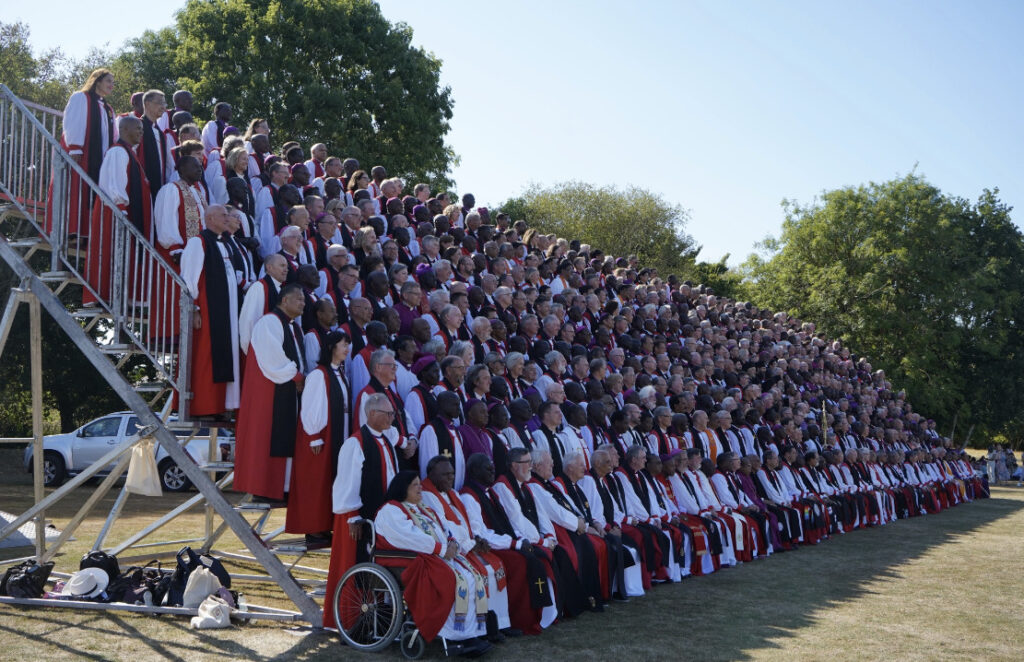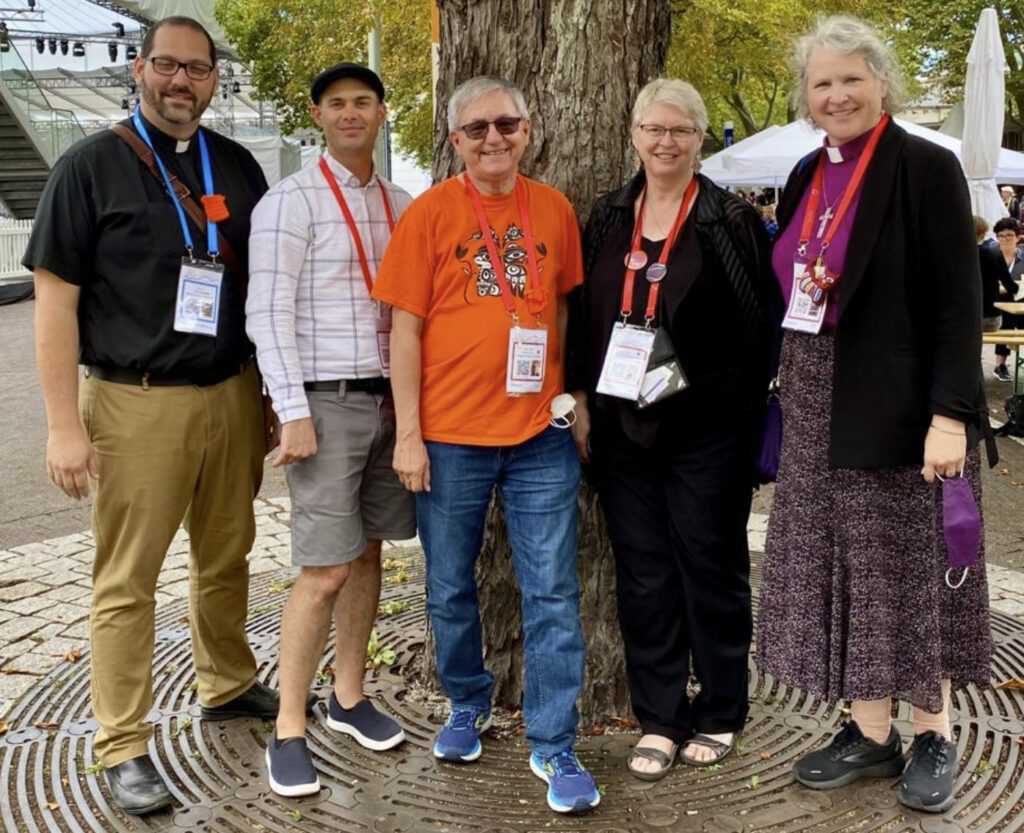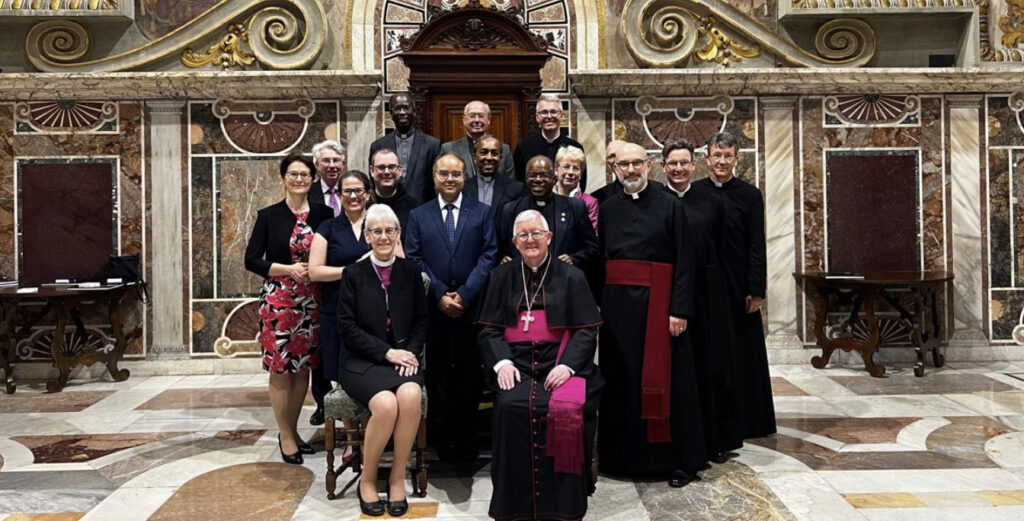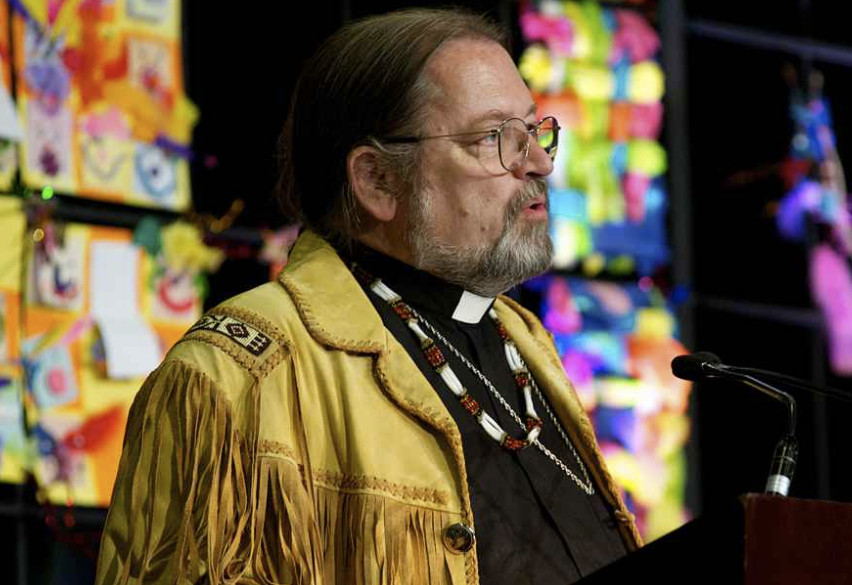The problem is the church is running out of money. The solution is a new committee.
During the years I’ve been attending an Anglican church, committees have come and gone leaving little behind them but a disagreeable whiff of empty posturing, very similar to IBM committee meetings that I attended during what passes for my career. The ecclesiastical version will, no doubt, be far more effective in inducing crippling ennui, since it will be populated by a gaggle of theologians, bishops and clergy whose tenuous grip on reality is summed up by this sentence in the article below: “The Communion has not split.”
Archbishop Linda Nicholls is suggesting “finding potentially radical solutions”. Before anyone rashly jumps to the conclusion that the Anglican Church of Canada is about to try Christianity to halt its dramatic decline, I refer you to another article, published at the same time, where Nicholls affirm[s] the dignity of LGBTQ+ people and their place in the church – which, in translation, means she affirms same-sex activity. And there is nothing less radical than that.
From here:
The church may soon have a new commission tasked with finding potentially “radical solutions” to the demographic and financial challenges that now face it, according to a proposal introduced by Archbishop Linda Nicholls, primate of the Anglican Church of Canada, in her opening statement to the Council of General Synod (CoGS) March 2.
Nicholls said a new strategy would be needed for the church to go forward into the post-pandemic world. It will need to respond to challenges including financial pressure “as parishes struggle to sustain full-time or part-time stipendiary ministry and dioceses struggle to meet multiple responsibilities at local, regional and national levels.” The national church, on the other hand, is facing the challenge of supporting ministry in regions where donations do not cover expenses, she said. Meanwhile, statistics show the church’s membership is aging and declining. Cultural shifts in Canadian society and a newly redefined relationship with the Indigenous church, she said, also demand new ideas.
[…….]
But in fact, Nicholls said, “the Communion remains committed to walking together—some at a great distance, others working more closely together.
“The Communion has not split.”



 In 2019, the church’s statistics and research officer, Canon Neil Elliot,
In 2019, the church’s statistics and research officer, Canon Neil Elliot,  The Anglican churches in Nigeria, Uganda and Rwanda have effectively separated from the Anglican Communion by refusing to participate in the Lambeth Conference, says Archbishop Linda Nicholls, primate of the Anglican Church of Canada.
The Anglican churches in Nigeria, Uganda and Rwanda have effectively separated from the Anglican Communion by refusing to participate in the Lambeth Conference, says Archbishop Linda Nicholls, primate of the Anglican Church of Canada. Climate change tops agenda at WCC Assembly, say Canadian delegates
Climate change tops agenda at WCC Assembly, say Canadian delegates The Anglican Church of Canada should continue to focus on providing pastoral care to people who are considering medical assistance in dying (MAID), not on opposing the law, says Archbishop Linda Nicholls, primate of the Anglican Church of Canada.
The Anglican Church of Canada should continue to focus on providing pastoral care to people who are considering medical assistance in dying (MAID), not on opposing the law, says Archbishop Linda Nicholls, primate of the Anglican Church of Canada. Anglicans have an indispensable role to play as Roman Catholics start a two-year conversation on how to become a more “synodal” church, Pope Francis said at his first meeting with Archbishop Linda Nicholls, primate of the Anglican Church of Canada.
Anglicans have an indispensable role to play as Roman Catholics start a two-year conversation on how to become a more “synodal” church, Pope Francis said at his first meeting with Archbishop Linda Nicholls, primate of the Anglican Church of Canada. As I mentioned
As I mentioned  The Anglican Church of Canada’s national office recorded two consecutive multi-million-dollar yearly surpluses in 2020 and 2021, for a combined total of just over $8 million, the church’s treasurer and chief financial officer has confirmed.
The Anglican Church of Canada’s national office recorded two consecutive multi-million-dollar yearly surpluses in 2020 and 2021, for a combined total of just over $8 million, the church’s treasurer and chief financial officer has confirmed.